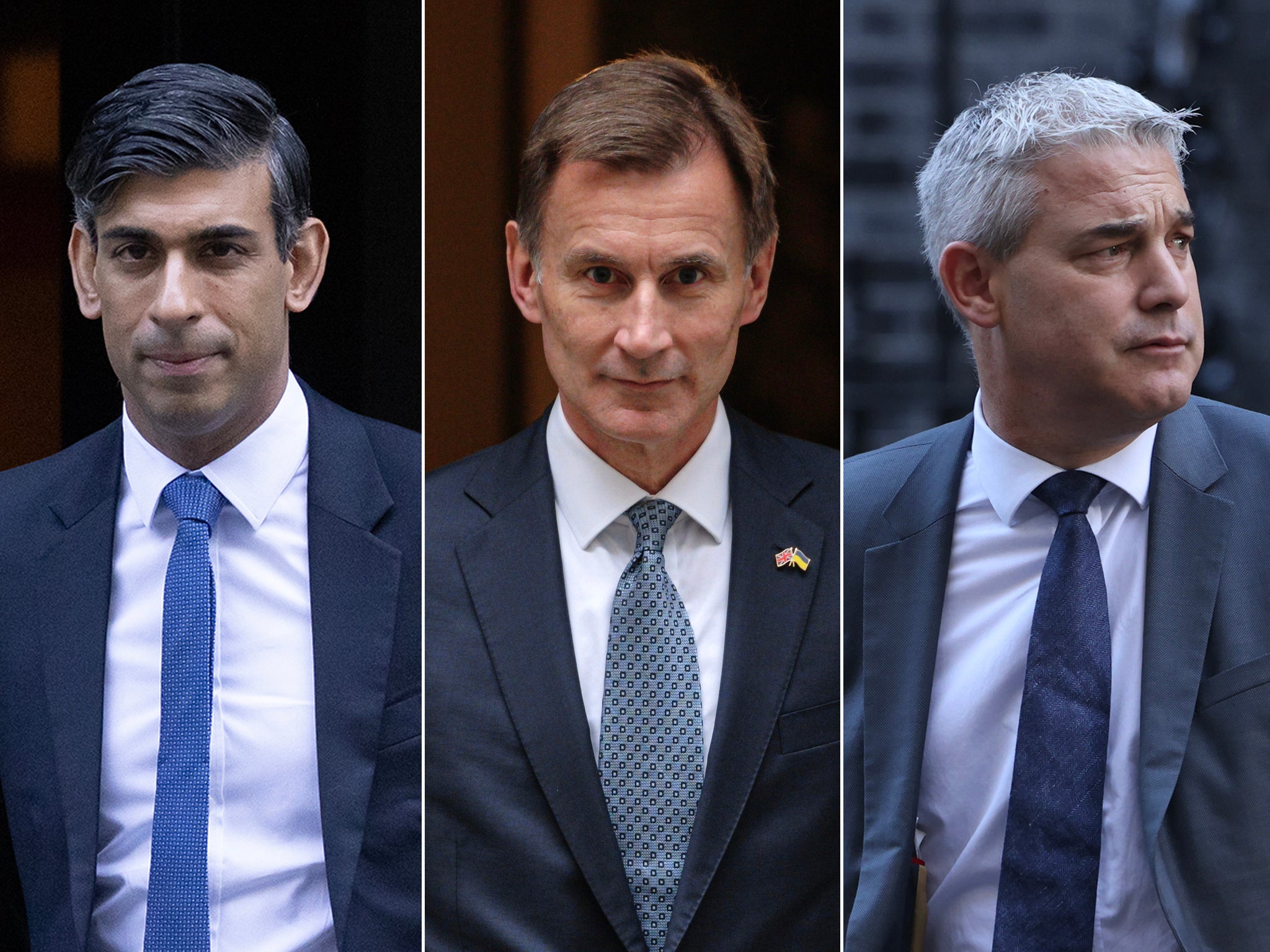Sunak should overrule Jeremy Hunt and push through a one-off payment to nurses
A £1,000 top-up would allow both sides to save face, writes Andrew Grice


When trade unions warned last autumn a “winter of discontent” was coming, Tory MPs were sniffy, pointing to the relatively low number of strikes compared to the infamous 1978-79 winter of discontent which hastened the end of the Labour government.
But thanks to the government’s intransigence, the unions’ warnings have come true. In November, almost half a million days were lost to industrial disputes, the highest figure in a month since 2011. In the six months to last November, more than 1.6 million days were lost, the most in any year since 1990.
Today, nurses and Environment Agency staff strike in England, ambulance workers have announced more stoppages and teaching unions hold talks with Gillian Keegan, the education secretary, ahead of a series of strikes by the National Education Union starting on 1 February. That day will see the highest number of strikes since 1978-79, with rail workers, civil servants and university lecturers also due to walk out. Tories are calling it a “de facto general strike”. (It isn’t. The real general strike in 1926 lasted for nine days).
A more conciliatory tone from ministers in meetings with union leaders in the past two weeks has not translated into an increased pay offer for health workers. Ministers will point to today’s fall in the annual rate of inflation from 10.7 to 10.5 per cent. But official figures yesterday showed public sector wage rises are running at 3.3 per cent, way behind the 7.2 per cent rate in the private sector. They have fallen behind the private sector since the Tories came to power in 2010 (with the exception of the pandemic). It’s little wonder that public sector workers have reached breaking point after years of Tory austerity. Public opinion is more sympathetic to the strikers than ministers had expected, which explains their slightly softer language.
According to Ipsos, 57 per cent of people think the government is more at fault for the length of the nurses’ dispute, while only 9 per cent blame the nurses. The public seem to accept the unions’ argument that the strikes are about the state of public services as well as pay. When YouGov asked people which factors are mostly to blame for NHS delays and shortages, 30 per cent named government policy, 24 per cent a shortage of workers, 8 per cent Covid and only 4 per cent strike action.
That is why some Tory MPs worry that the government is wrong to deploy Margaret Thatcher’s union playbook. “We are in a different era now,” one former minister told me. “She was clearing up the mess left behind by Labour and had public permission for union reform. The danger is that the public blame us for today’s problems.”
Rishi Sunak gave the game away in an email to Tory party members this week: it showed Keir Starmer in the pocket of the RMT leader Mick Lynch. Never mind that the RMT is not affiliated with Labour. It’s another sign of the Tories replaying their old tunes. (At the 2015 election, they depicted Ed Miliband in the pocket of Alex Salmond).
Starmer is not living up to his caricature; he is refusing to back the unions’ pay demands or allow his frontbenchers to join picket lines. Desperate for ammunition against him, the Tories laid a trap he couldn’t avoid: a law requiring minimum service levels during strikes. Labour is opposing it. But even the Tories did last October: when making the case for minimum service levels during transport strikes, the government admitted there was no need for them in the health or fire services because safety measures were already in place.
Ministers have opportunistically changed their tune. They have argued that the International Labour Organisation supports their plans. But now Gilbert Houngbo, its director general, has told the BBC that he was “very worried about workers having to accept” being faced with the threat of losing their jobs, which the legislation could allow.
Despite his warning in The Independent today that “unaffordable” wage rises would fuel inflation and damage patient care, Steve Barclay, the health secretary, would like to offer a one-off payment to nurses. But the Treasury is refusing to stump up extra money, telling him to find at least £2bn of savings to fund it.
Sunak should live up to the “reasonable” image he cultivates by overruling Jeremy Hunt to ensure such an offer is made; a £1,000 top-up would allow both sides to save face. The government could say it had not reopened the pay settlement for the 2022-23 financial year, while the unions could trumpet winning a cost-of-living payment.
The alternative is a war of attrition lasting months, with no winners, more strikes and yet more damage being inflicted to the ailing NHS.
Join our commenting forum
Join thought-provoking conversations, follow other Independent readers and see their replies
Comments
Bookmark popover
Removed from bookmarks